The fashion industry is one of the most influential and profitable sectors in the world, but it also has a huge environmental impact. According to the United Nations, the textile industry is responsible for 10% of global carbon emissions, 20% of global wastewater, and consumes more energy than the aviation and shipping industries combined. Moreover, the industry generates millions of tons of textile waste every year, most of which ends up in landfills or incinerators.
What We'll Cover
However, there is a growing movement of stores selling recycled material products that are challenging the status quo and transforming the fashion industry. These stores are using recycled materials, such as plastic bottles, cotton scraps, or used clothing, to create new products that are stylish, comfortable, and sustainable. By doing so, they are reducing the environmental impact of the textile industry, innovating in design and quality, promoting responsible consumption and circular fashion, collaborating with plastic waste transformation organizations, and fostering creativity in repurposing used clothing.
In this article, we will explore how these stores are changing the fashion industry and why they are important for the future of our planet.
Reducing the Environmental Impact of the Textile Industry
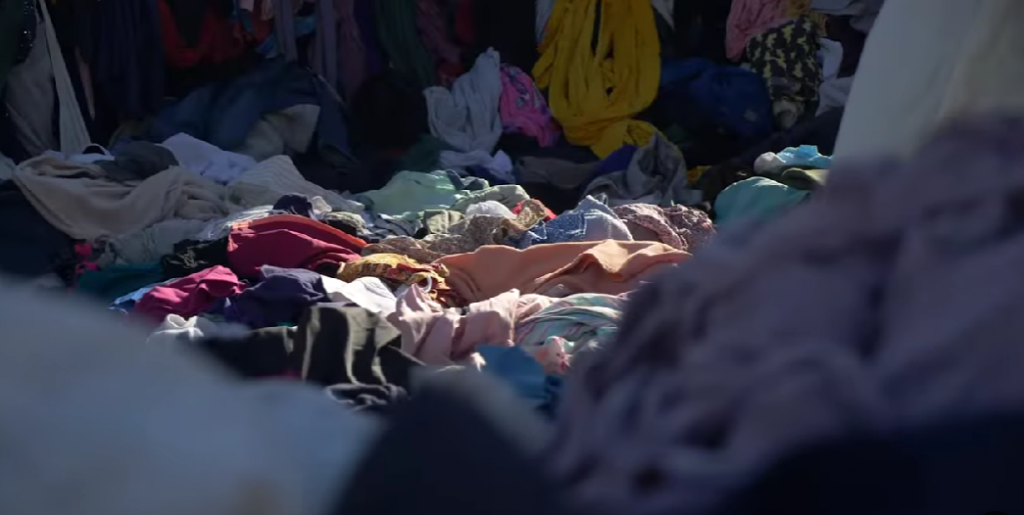
One of the main benefits of stores selling recycled material products is that they help reduce the environmental impact of the textile industry. By using recycled materials instead of virgin ones, they save natural resources, such as water, energy, and land, and prevent greenhouse gas emissions and pollution.
The textile industry’s role as a major pollutant and waste generator is undeniable. The production of raw materials, such as cotton or polyester, requires large amounts of water and chemicals. The dyeing and finishing processes release toxic substances into the environment. The transportation and distribution of clothing contributes to carbon emissions. And the disposal of clothing creates waste that takes years to decompose or emits harmful gases when burned.
The significance of stores selling recycled material products in addressing environmental concerns is evident. By using recycled materials in their products, these stores avoid or reduce many of the negative impacts of the textile industry. They conserve water and energy by reusing existing materials. They prevent pollution by diverting waste from landfills or oceans. They reduce carbon emissions by minimizing transportation and distribution.
How the use of recycled materials in fashion contributes to a more sustainable industry is clear. By using recycled materials in their products, these stores create a circular economy that keeps materials in use for longer and reduces the need for new production. They also create value from waste and turn it into something useful and beautiful.
Innovation in Design and Quality with Recycled Materials
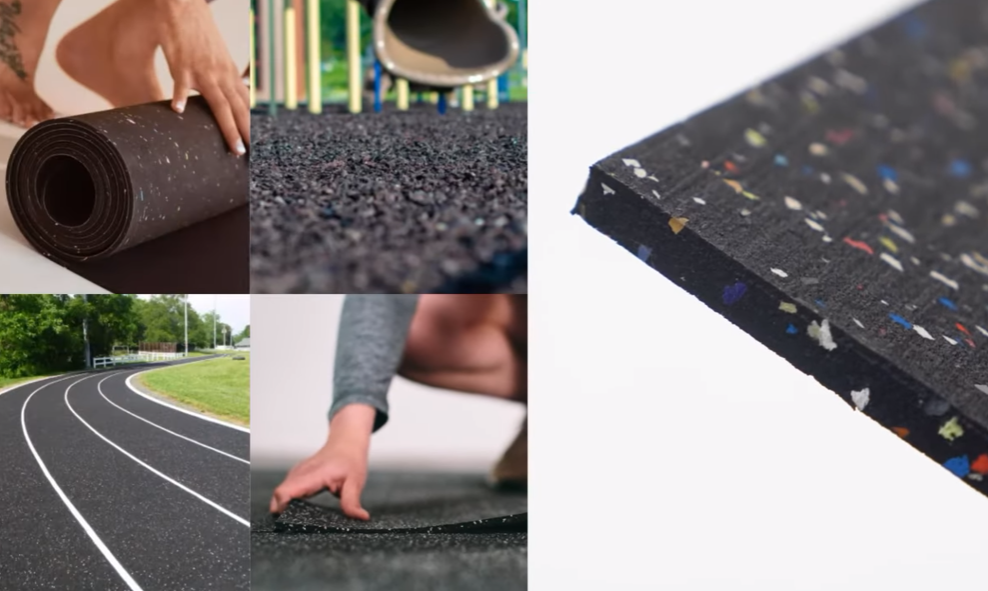
Another benefit of stores selling recycled material products is that they demonstrate innovation in design and quality with recycled materials. These stores balance comfort, functionality, and sustainability in their product design, creating products that meet the needs and preferences of their customers while being eco-friendly.
To achieve this balance, these stores explore the advancements in technology and materials for sustainable fashion. They use cutting-edge processes and techniques to transform waste into high-performance fabrics. They also use natural or organic materials that are less harmful to the environment.
Examples of brands at the forefront of creating high-quality products from recycled materials are:
Rothy’s
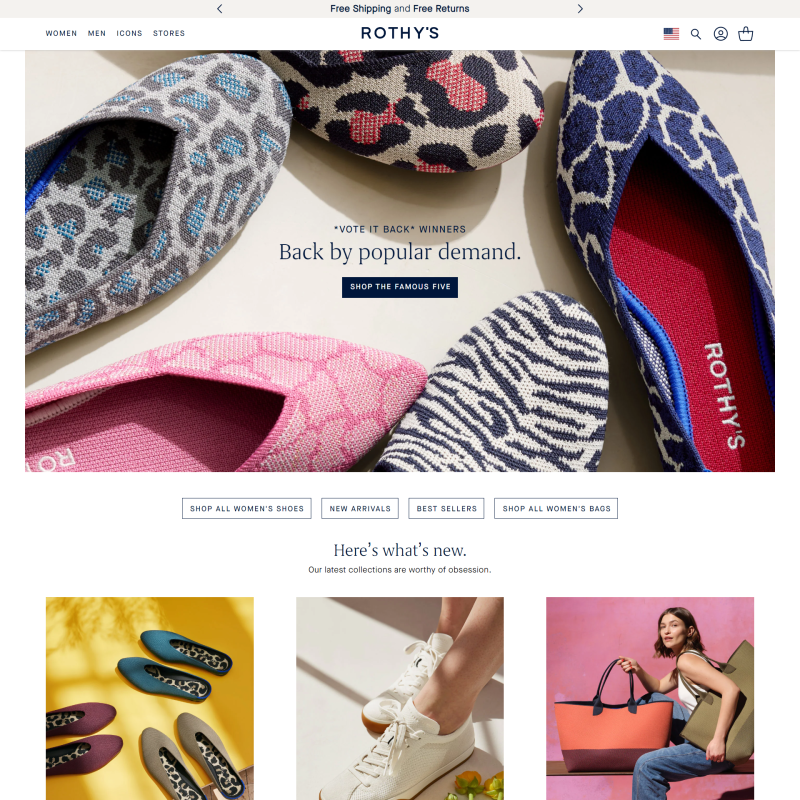
Washable Shoes and Bags Made with Recycled Materials. Rothy’s uses a proprietary 3D knitting process that creates durable and flexible, seamless shoes and bags. They use recycled plastic bottles as their main material source and have saved over 100 million bottles from landfills or oceans since 2016.
Fair Harbor
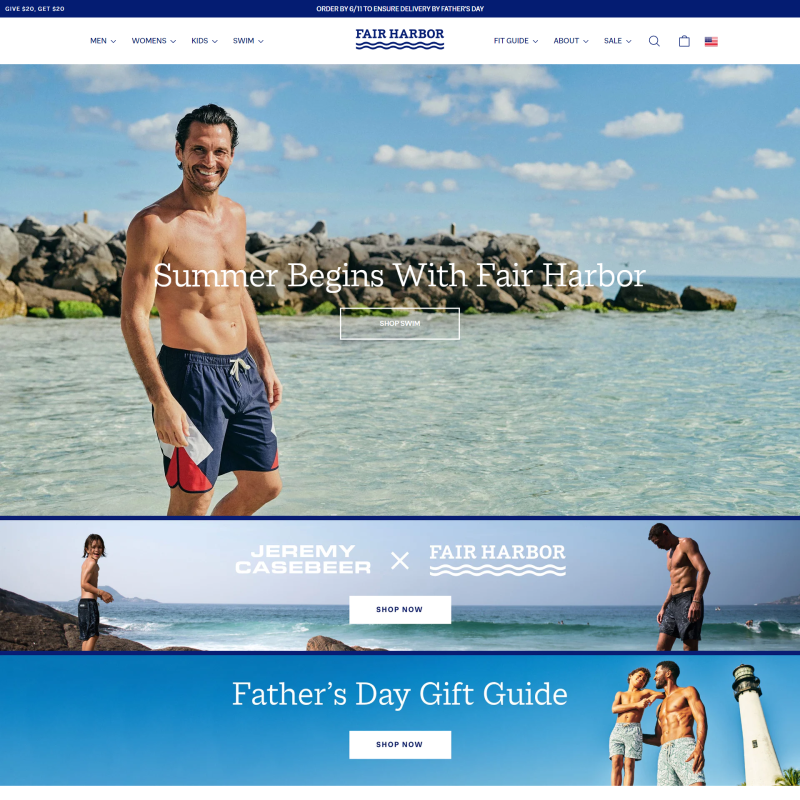
Sustainable Swimwear Made from Recycled Materials. Fair Harbor is a store that specializes in sustainable swimwear made from recycled materials. They use post-consumer plastic bottles or fishing nets to create swimwear that is comfortable, durable, and stylish. Each pair of swim shorts or bikini bottoms saves 11 plastic bottles from landfills or oceans. Fair Harbor also collaborates with organizations such as Surfrider Foundation or Oceanic Global to support ocean conservation efforts.
Products made with recycled content | Adidas US.
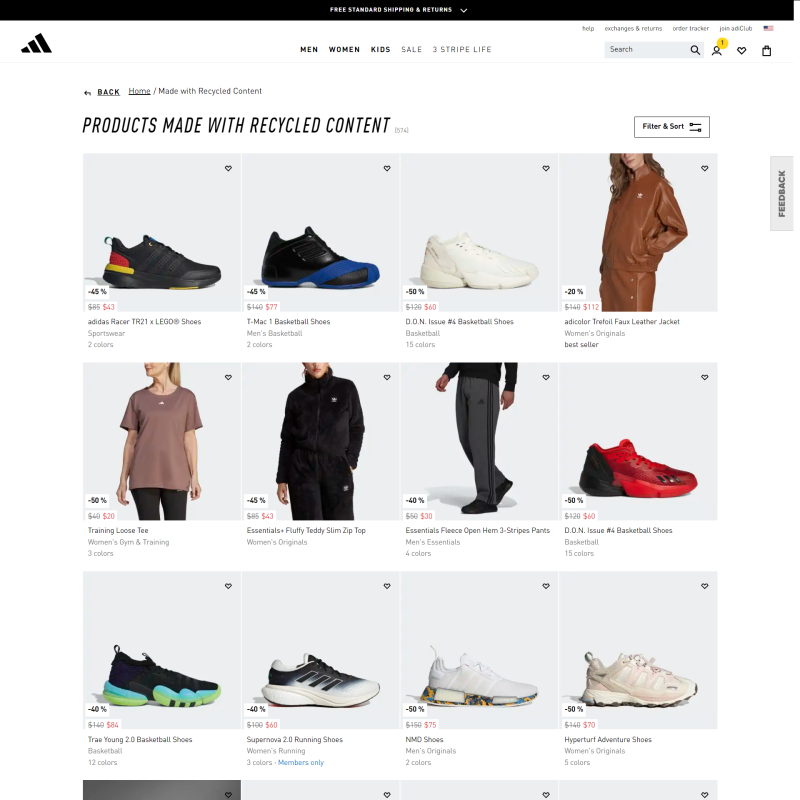
Adidas is a store that sells products made with recycled content, such as Parley ocean plastic or recycled polyester or nylon. They use technologies such as Primeblue and Primegreen that incorporate at least 40% recycled content in high-performance fabrics. They also collaborate with Parley for the Oceans to create products made from upcycled marine plastic waste.
These examples show how these stores are innovating in design and quality with recycled materials that are not only fashionable but also functional and sustainable.
Promoting Responsible Consumption and Circular Fashion
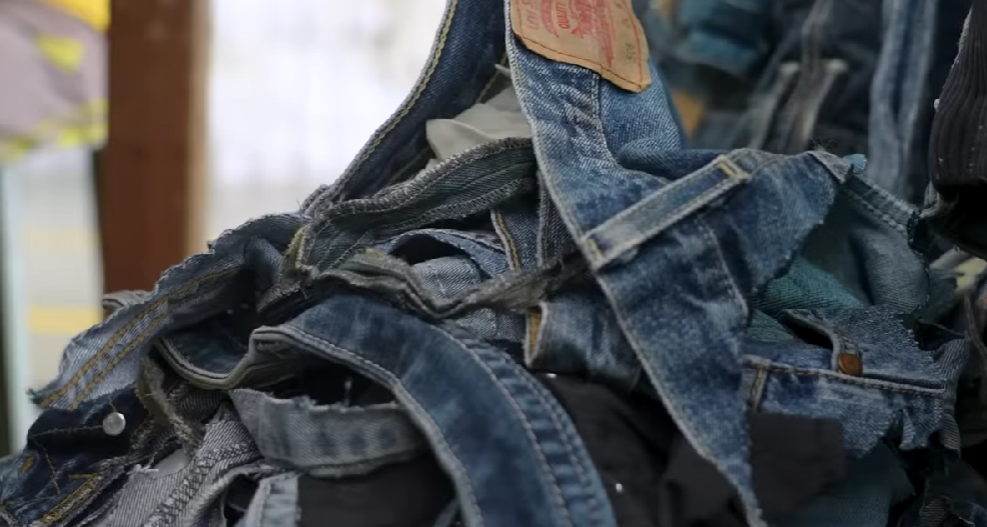
A third benefit of stores selling recycled material products is that they promote responsible consumption and circular fashion among their customers. These stores educate consumers about the benefits of circular fashion, which is a model that aims to extend the lifespan of garments and avoid waste by designing products that can be reused, recycled, or regenerated. By doing so, they encourage conscious buying habits and reduce the demand for fast fashion, which is a model that produces low-quality and cheap clothing that quickly goes out of style and ends up in landfills or incinerators.
Extending the lifespan of garments and avoiding waste of natural resources is one of the goals of circular fashion. By using recycled materials in their products, these stores help to prolong the life cycle of clothing and prevent it from becoming waste. They also help to conserve natural resources by reusing existing materials instead of producing new ones.
Educating consumers about the benefits of circular fashion is another way these stores promote responsible consumption. By informing consumers about the environmental impact of their choices, these stores raise awareness about the importance of sustainability in fashion. They also inspire consumers to adopt more eco-friendly practices, such as repairing, donating, or swapping clothing.
Encouraging conscious buying habits and reducing the demand for fast fashion is another outcome of these stores’ promotion of responsible consumption. By offering high-quality products made from recycled materials, these stores appeal to consumers who value durability, style, and ethics over quantity, price, and trends. They also challenge consumers to rethink their consumption patterns and to buy less but better.
Collaboration with Plastic Waste Transformation Organizations
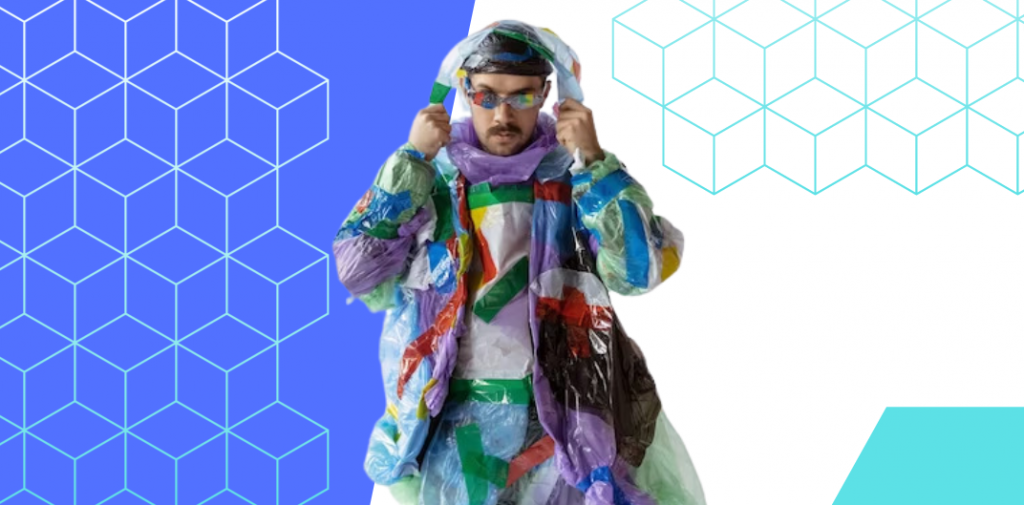
A fourth benefit of stores selling recycled material products is that they collaborate with plastic waste transformation organizations that collect and transform plastic waste into textile fibers. These organizations play a vital role in addressing the global plastic pollution crisis, which threatens marine life, human health, and climate change. By supporting and contributing to these organizations, these stores help to reduce plastic waste and to create value from it.
Spotlighting organizations like Parley for the Oceans and their work with plastic waste is one way these stores collaborate with plastic waste transformation organizations. Parley for the Oceans is an organization that partners with adidas and other brands to create products made with Parley ocean plastic. Parley ocean plastic is a material made from upcycled marine plastic waste, such as fishing nets, plastic bottles, or bags, that Parley collects from remote islands, beaches, coastal communities, and oceans. According to Parley, they have intercepted over 7,000 tons of marine plastic waste since 2015.
How fashion stores can support and contribute to plastic waste transformation initiatives is another aspect of these stores’ collaboration with plastic waste transformation organizations. By using Parley ocean plastic or other recycled materials derived from plastic waste in their products, these stores support Parley’s mission to end marine plastic pollution. They also contribute financially to Parley’s initiatives for ocean protection, such as education, research, or cleanups.
The positive outcomes of these collaborations are not only for the fashion industry but also for environmental conservation. By using Parley ocean plastic or other recycled materials derived from plastic waste in their products, these stores help to raise awareness about ocean plastic pollution, to fund Parley’s initiatives for ocean protection, and to inspire action for change.
Creativity in Repurposing Used Clothing
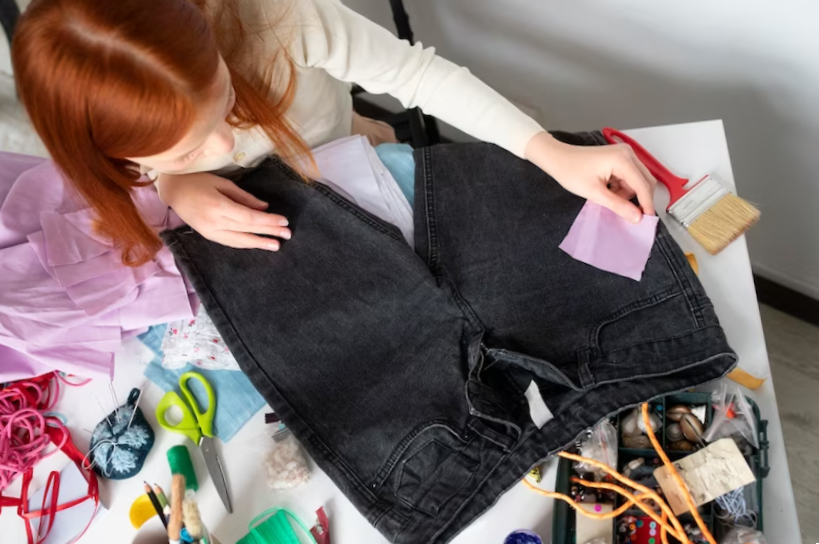
A fifth benefit of stores selling recycled material products is that they foster creativity in repurposing used clothing. These stores explore the potential of transforming used clothing into new products that are useful, beautiful, and original. By doing so, they demonstrate how repurposing promotes sustainability and reduces textile waste.
Exploring the potential of transforming used clothing into new products is one way these stores foster creativity in repurposing used clothing. These stores use their imagination and skills to create new products from old clothing that would otherwise be discarded. They also use natural or organic materials that are less harmful to the environment.
Examples of creative products derived from recycled garments are:
Eyewear made from recycled denim jeans by Mosevic

HALLEY is a feline frame with a hint of mischeif. This cat eye style frame was designed for women, but it turns out that it suits a lot of people.
Style - Cat eye
Denim options - Choose Blue, Black...
Accessories made from recycled saris by Anchal Project
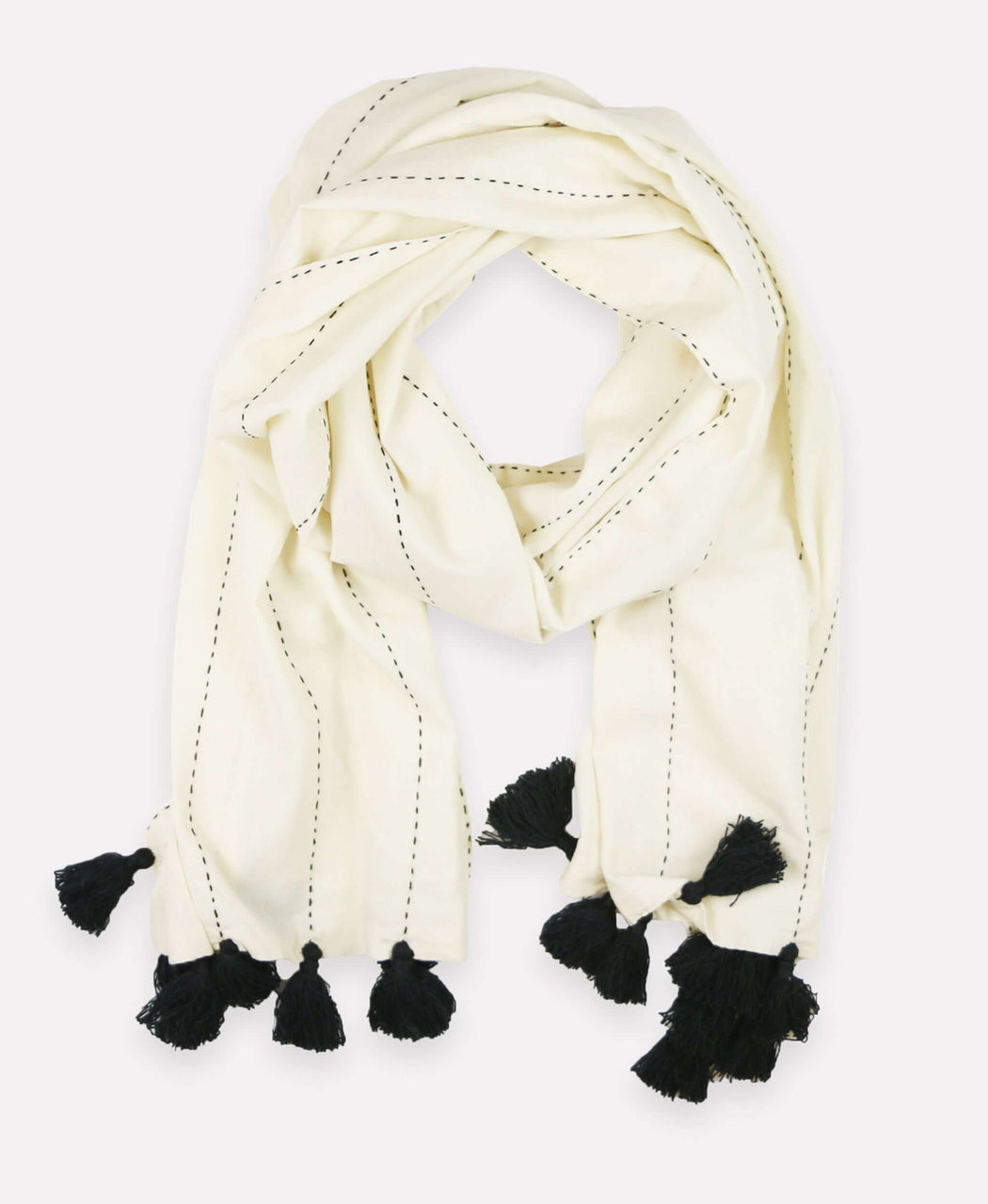
This lightweight and easy-to-style oversized scarf is handcrafted using buttery soft organic cotton. Detailed stitching and fun tassels make this scarf a stylish nod at effortless elegance. Drape i...
These examples show how these stores use creativity in repurposing used clothing to create new products that are useful, beautiful, and original.
Conclusion
In conclusion, stores selling recycled material products are changing the fashion industry by reducing its environmental impact, innovating in design and quality, promoting responsible consumption and circular fashion, collaborating with plastic waste transformation organizations, and fostering creativity in repurposing used clothing.
These stores are important for the future of our planet, as they offer alternatives to fast fashion that are more sustainable, ethical, and enjoyable. We encourage consumers to support and embrace these sustainable fashion options and to join us in creating a better world for ourselves and future generations.
The responses below are not provided, commissioned, reviewed, approved, or otherwise endorsed by any financial entity or advertiser. It is not the advertiser’s responsibility to ensure all posts and/or questions are answered.









